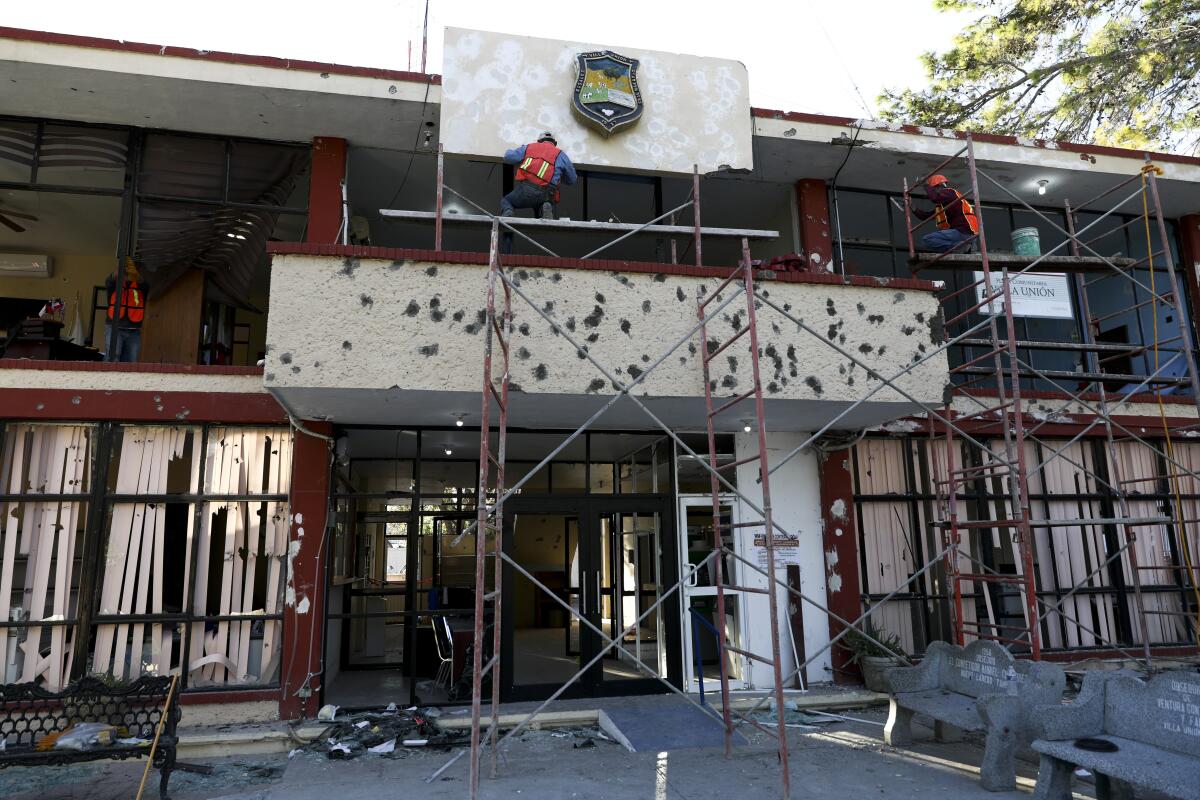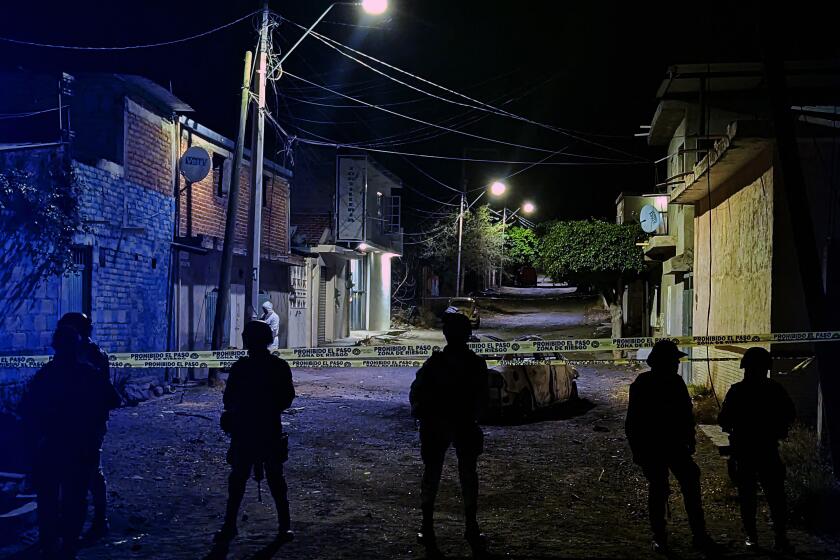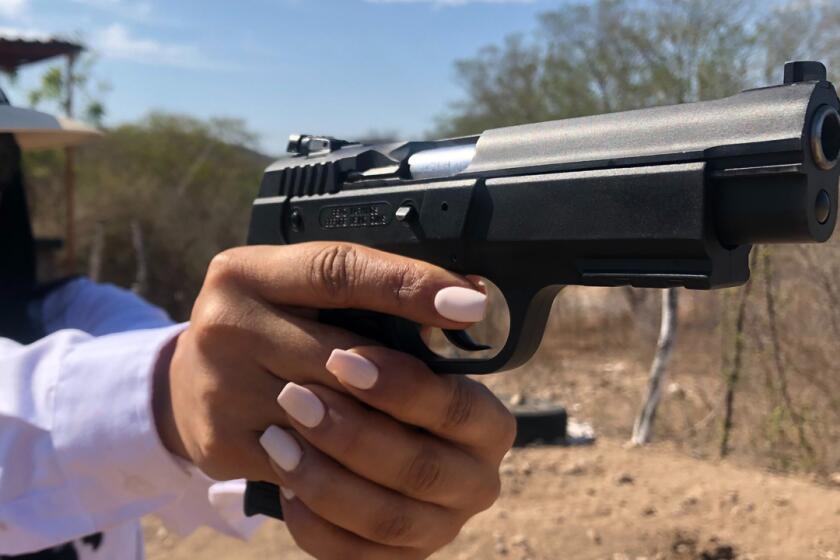Mexico demands investigation into U.S. military-grade weapons being used by drug cartels

- Share via
MEXICO CITY — Mexico wants an urgent investigation into how U.S. military-grade weapons are increasingly being found in the hands of Mexican drug cartels, Mexico’s top diplomat said Monday.
Mexico’s army is finding belt-fed machine guns, rocket launchers and grenades that are not sold for civilian use in the United States.
“The [Mexican] Defense Department has warned the United States about weapons entering Mexico that are for the exclusive use of the U.S. army,” Foreign Relations Secretary Alicia Bárcena said. “It is very urgent that an investigation into this be carried out.”
The Mexican army said in June that it had seized 221 fully automatic machine guns, 56 grenade launchers and a dozen rocket launchers from drug cartels since late 2018.
A study published in Science estimated that Mexican cartels recruit about 360 workers each week to replace those lost to violence or incarceration.
The military-grade U.S. weaponry — which cartels have bragged about and openly displayed on social media — poses a special challenge for Mexico’s army, which along with police and the National Guard already faces cartels operating homemade armored vehicles and bomb-dropping drones.
In June, Defense Secretary Luis Cresencio Sandoval said five rocket launchers had been found in the possession of the Jalisco New Generation cartel, four were seized from the rival Sinaloa cartel and three more seized from other cartels. Sandoval did not specifically say the weapons were from U.S. military stockpiles.
The U.S. government had no immediate response, though the U.S. ambassador to Mexico was expected to speak to the media later Monday.
While the Mexican army and marines still have superior firepower, the drug cartels’ weaponry often now outclasses other branches of Mexican law enforcement.
Mexico has long had a problem with semiautomatic rifles that are permitted for civilian use in the United States being smuggled into Mexico, where only low-caliber firearms are permitted and strictly regulated. Mexico has launched legal actions against U.S. arms manufacturers and gun shops, arguing that they contribute to violence.
In this excerpt from her book ‘Narcas,’ veteran journalist Deborah Bonello uncovers some of the powerful women inside the macho world of Latin America’s brutal drug gangs.
Also Monday, describing talks last week with U.S. officials, Bárcena said the United States is planning to announce sanctions against airlines and transportation companies that move migrants to South and Central America and through Mexico to the U.S. border.
“The United States said it was going to impose sanctions on South American and Central American companies that are transporting migrants irregularly, and they want us to do the same,” Bárcena said. “The [Mexican] Interior Department is going to call on the bus and airline companies, but we don’t want them [the United States] to act unilaterally.”
Mexico, meanwhile, wants changes made to the U.S. CBP One mobile application for asylum seekers to make appointments.
The app is designed only to work on telephones in northern Mexico, but Bárcena said Mexico has asked that coverage be extended to allow appointments to be made from farther south, to avoid a pileup of migrants rushing to Mexico’s northern border cities.
More to Read
Sign up for Essential California
The most important California stories and recommendations in your inbox every morning.
You may occasionally receive promotional content from the Los Angeles Times.












